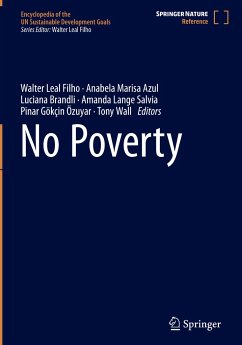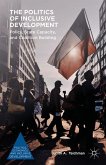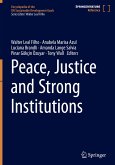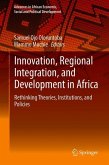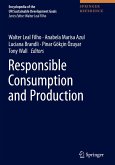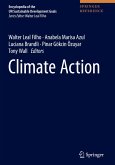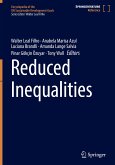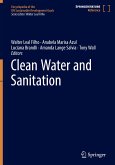The problems related to the process of industrialisation such as biodiversity depletion, climate change and a worsening of health and living conditions, especially but not only in developing countries, intensify. Therefore, there is an increasing need to search for integrated solutions to make development more sustainable. The United Nations has acknowledged the problem and approved the "2030 Agenda for Sustainable Development". On 1st January 2016, the 17 Sustainable Development Goals (SDGs) of the Agenda officially came into force. These goals cover the three dimensions of sustainable development: economic growth, social inclusion and environmental protection.
The Encyclopedia of the UN Sustainable Development Goals comprehensively addresses the SDGs in an integrated way. It encompasses 17 volumes, each devoted to one of the 17 SDGs. This volume addresses SDG 1, namely "End poverty in all its forms everywhere" and contains the description of a range of terms, which allows for a better understanding and fosters knowledge about it.
Concretely, the defined targets are:
Eradicate extreme poverty for all people everywhere, currently measured as people living on less than $1.25 a day Reduce at least by half the proportion of men, women and children of all ages living in poverty in all its dimensions according to national definitionsImplement nationally appropriate social protection systems and measures for all, including floors, and achieve substantial coverage of the poor and the vulnerableEnsure that all men and women, in particular the poor and the vulnerable, have equal rights to economic resources, as well as access to basic services, ownership and control over land and other forms of property, inheritance, natural resources, appropriate new technology and financial services, including microfinanceBuild the resilience of the poor and those in vulnerablesituations and reduce their exposure and vulnerability to climate-related extreme events and other economic, social and environmental shocks and disastersEnsure significant mobilization of resources from a variety of sources, including through enhanced development cooperation, in order to provide adequate and predictable means for developing countries, in particular least developed countries, to implement programmes and policies to end poverty in all its dimensionsCreate sound policy frameworks at the national, regional and international levels, based on pro-poor and gender-sensitive development strategies, to support accelerated investment in poverty eradication actionsEditorial Board
Sarah Ahmed, Bankole Osita Awuzie, Katarzyna Cichos, Fernanda Frankenberger, Usha Iyer-Raniga, Amanda Lange Salvia, Pinar Gökçin Özuyar, Kalterina Shulla, Ranjit Voola
Hinweis: Dieser Artikel kann nur an eine deutsche Lieferadresse ausgeliefert werden.
The Encyclopedia of the UN Sustainable Development Goals comprehensively addresses the SDGs in an integrated way. It encompasses 17 volumes, each devoted to one of the 17 SDGs. This volume addresses SDG 1, namely "End poverty in all its forms everywhere" and contains the description of a range of terms, which allows for a better understanding and fosters knowledge about it.
Concretely, the defined targets are:
Eradicate extreme poverty for all people everywhere, currently measured as people living on less than $1.25 a day Reduce at least by half the proportion of men, women and children of all ages living in poverty in all its dimensions according to national definitionsImplement nationally appropriate social protection systems and measures for all, including floors, and achieve substantial coverage of the poor and the vulnerableEnsure that all men and women, in particular the poor and the vulnerable, have equal rights to economic resources, as well as access to basic services, ownership and control over land and other forms of property, inheritance, natural resources, appropriate new technology and financial services, including microfinanceBuild the resilience of the poor and those in vulnerablesituations and reduce their exposure and vulnerability to climate-related extreme events and other economic, social and environmental shocks and disastersEnsure significant mobilization of resources from a variety of sources, including through enhanced development cooperation, in order to provide adequate and predictable means for developing countries, in particular least developed countries, to implement programmes and policies to end poverty in all its dimensionsCreate sound policy frameworks at the national, regional and international levels, based on pro-poor and gender-sensitive development strategies, to support accelerated investment in poverty eradication actionsEditorial Board
Sarah Ahmed, Bankole Osita Awuzie, Katarzyna Cichos, Fernanda Frankenberger, Usha Iyer-Raniga, Amanda Lange Salvia, Pinar Gökçin Özuyar, Kalterina Shulla, Ranjit Voola
Hinweis: Dieser Artikel kann nur an eine deutsche Lieferadresse ausgeliefert werden.

